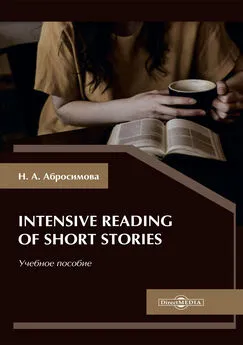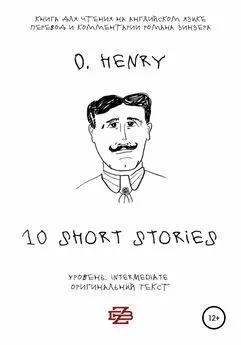Somerset Maugham - Sixty-Five Short Stories
- Название:Sixty-Five Short Stories
- Автор:
- Жанр:
- Издательство:неизвестно
- Год:неизвестен
- ISBN:нет данных
- Рейтинг:
- Избранное:Добавить в избранное
-
Отзывы:
-
Ваша оценка:
Somerset Maugham - Sixty-Five Short Stories краткое содержание
Sixty-Five Short Stories - читать онлайн бесплатно полную версию (весь текст целиком)
Интервал:
Закладка:
'He don't know what he's up against,' said Nelson. 'Someone ought to put him wise.'
'If you'll take my advice you won't interfere in what don't concern you,' said Miller. 'When a man's made up his mind to make a fool of himself, there's nothing like letting him.'
'I'm all for having a good time with the girls out here, but when it comes to marrying them-this child ain't taking any, I'll tell the world.'
Chaplin was there, and now he had his say.
'I've seen a lot of fellows do it, and it's no good.'
'You ought to have a talk with him, Chaplin,' said Nelson. 'You know him better than anyone else does.'
'My advice to Chaplin is to leave it alone,' said Miller.
Even in those days Lawson was not popular and really no one took enough interest in him to bother. Mrs Chaplin talked it over with two or three of the white ladies, but they contented themselves with saying that it was a pity; and when he told her definitely that he was going to be married it seemed too late to do anything.
For a year Lawson was happy. He took a bungalow at the point of the bay round which Apia is built, on the borders of a native village. It nestled charmingly among the coconut trees and faced the passionate blue of the Pacific. Ethel was lovely as she went about the little house, lithe and graceful like some young animal of the woods, and she was gay. They laughed a great deal. They talked nonsense. Sometimes one or two of the men at the hotel would come over and spend the evening, and often on a Sunday they would go for a day to some planter who had married a native; now and then one or other of the half-caste traders who had a store in Apia would give a party and they went to it. The half-castes treated Lawson quite differently now. His marriage had made him one of themselves and they called him Bertie. They put their arms through his and smacked him on the back. He liked to see Ethel at these gatherings. Her eyes shone and she laughed. It did him good to see her radiant happiness. Sometimes Ethel's relations would come to the bungalow, Old Brevald of course, and her mother, but cousins too, vague native women in Mother Hubbards and men and boys in lava-lavas, with their hair dyed red and their bodies elaborately tattooed. He would find them sitting there when he got back from the bank. He laughed indulgently.
'Don't let them eat us out of hearth and home,' he said.
'They're my own family. I can't help doing something for them when they ask me.'
He knew that when a white man marries a native or a half-caste he must expect her relations to look upon him as a gold mine. He took Ethel's face in his hands and kissed her red lips. Perhaps he could not expect her to understand that the salary which had amply sufficed for a bachelor must be managed with some care when it had to support a wife and a house. Then Ethel was delivered of a son.
It was when Lawson first held the child in his arms that a sudden pang shot through his heart. He had not expected it to be so dark. After all it had but a fourth part of native blood, and there was no reason really why it should not look just like an English baby; but, huddled together in his arms, sallow, its head covered already with black hair, with huge black eyes, it might have been a native child. Since his marriage he had been ignored by the white ladies of the colony. When he came across men in whose houses he had been accustomed to dine as a bachelor, they were a little self-conscious with him; and they sought to cover their embarrassment by an exaggerated cordiality.
'Mrs Lawson well?' they would say. 'You're a lucky fellow. Damned pretty girl.'
But if they were with their wives and met him and Ethel they would feel it awkward when their wives gave Ethel a patronizing nod. Lawson had laughed.
'They're as dull as ditch water, the whole gang of them,' he said. 'It's not going to disturb my night's rest if they don't ask me to their dirty parties.'
But now it irked him a little.
The little dark baby screwed up its face. That was his son. He thought of the half-caste children in Apia. They had an unhealthy look, sallow and pale, and they were odiously precocious. He had seen them on the boat going to school in New Zealand, and a school had to be chosen which took children with native blood in them; they were huddled together, brazen and yet timid, with traits which set them apart strangely from white people. They spoke the native language among themselves. And when they grew up the men accepted smaller salaries because of their native blood; girls might marry a white man, but boys had no chance; they must marry a half-caste like themselves, or a native. Lawson made up his mind passionately that he would take his son away from the humiliation of such a life. At whatever cost he must get back to Europe. And when he went in to see Ethel, frail and lovely in her bed, surrounded by native women, his determination was strengthened. If he took her away among his own people she would belong more completely to him. He loved her so passionately he wanted her to be one soul and one body with him; and he was conscious that here, with those deep roots attaching her to the native life, she would always keep something from him.
He went to work quietly, urged by an obscure instinct of secrecy, and wrote to a cousin who was a partner in a shipping firm in Aberdeen, saying that his health (on account of which like so many more he had come out to the islands) was so much better, there seemed no reason why he should not return to Europe. He asked him to use what influence he could to get him a job, no matter how poorly paid, on Deeside, where the climate was particularly suitable to such as suffered from diseases of the lungs. It takes five or six weeks for letters to get from Aberdeen to Samoa, and several had to be exchanged. He had plenty of time to prepare Ethel. She was as delighted as a child. He was amused to see how she boasted to her friends that she was going to England; it was a step up for her; she would be quite English there; and she was excited at the interest the approaching departure gave her. When at length a cable came offering him a post in a bank in Kincardineshire she was beside herself with joy.
When, their long journey over, they were settled in the little Scots town with its granite houses Lawson realized how much it meant to him to live once more among his own people. He looked back on the three years he had spent in Apia as exile, and returned to the life that seemed the only normal one with a sigh of relief. It was good to play golf once more, and to fish-to fish properly, that was poor fun in the Pacific when you just threw in your line and pulled out one big sluggish fish after another from the crowded sea-and it was good to see a paper every day with that day's news, and to meet men and women of your own sort, people you could talk to; and it was good to eat meat that was not frozen and to drink milk that was not canned. They were thrown upon their own resources much more than in the Pacific, and he was glad to have Ethel exclusively to himself. After two years of marriage he loved her more devotedly than ever, he could hardly bear her out of his sight, and the need in him grew urgent for a more intimate communion between them. But it was strange that after the first excitement of arrival she seemed to take less interest in the new life than he had expected. She did not accustom herself to her surroundings. She was a little lethargic. As the fine autumn darkened into winter she complained of the cold. She lay half the morning in bed and the rest of the day on a sofa, reading novels sometimes, but more often doing nothing. She looked pinched.
'Never mind, darling,' he said. 'You'll get used to it very soon. And wait till the summer comes. It can be almost as hot as in Apia.'
He felt better and stronger than he had done for years.
The carelessness with which she managed her house had not mattered in Samoa, but here it was out of place. When anyone came he did not want the place to look untidy; and, laughing, chaffing Ethel a little, he set about putting things in order. Ethel watched him indolently. She spent long hours playing with her son. She talked to him in the baby language of her own country. To distract her, Lawson bestirred himself to make friends among the neighbours, and now and then they went to little parties where the ladies sang drawing-room ballads and the men beamed in silent good nature. Ethel was shy. She seemed to sit apart. Sometimes Lawson, seized with a sudden anxiety, would ask her if she was happy.
'Yes, I'm quite happy,' she answered.
But her eyes were veiled by some thought he could not guess. She seemed to withdraw into herself so that he was conscious that he knew no more of her than when he had first seen her bathing in the pool. He had an uneasy feeling that she was concealing something from him, and because he adored her it tortured him.
'You don't regret Apia, do you?' he asked her once.
'Oh, no-I think it's very nice here.'
An obscure misgiving drove him to make disparaging remarks about the island and the people there. She smiled and did not answer. Very rarely she received a bundle of letters from Samoa and then she went about for a day or two with a set, pale face.
'Nothing would induce me ever to go back there,' he said once. 'It's no place for a white man.'
But he grew conscious that sometimes, when he was away, Ethel cried. In Apia she had been talkative, chatting volubly about all the little details of their common life, the gossip of the place; but now she gradually became silent, and, though he increased his efforts to amuse her, she remained listless. It seemed to him that her recollections of the old life were drawing her away from him, and he was madly jealous of the island and of the sea, of Brevald, and all the dark-skinned people whom he remembered now with horror. When she spoke of Samoa he was bitter and satirical. One evening late in the spring when the birch trees were bursting into leaf, coming home from a round of golf, he found her not as usual lying on the sofa, but at the window, standing. She had evidently been waiting for his return. She addressed him the moment he came into the room. To his amazement she spoke in Samoan.
'I can't stand it. I can't live here any more. I hate it. I hate it.'
'For God's sake speak in a civilized language,' he said irritably.
She went up to him and clasped her arms around his body awkwardly, with a gesture that had in it something barbaric.
'Let's go away from here. Let's go back to Samoa. If you make me stay here I shall die. I want to go home.'
Her passion broke suddenly and she burst into tears. His anger vanished and he drew her down on his knees. He explained to her that it was impossible for him to throw up his job, which after all meant his bread and butter. His place in Apia was long since filled. He had nothing to go back to there. He tried to put it to her reasonably, the inconveniences of life there, the humiliation to which they must be exposed, and the bitterness it must cause their son.
'Scotland's wonderful for education and that sort of thing. Schools are good and cheap, and he can go to the University at Aberdeen. I'll make a real Scot of him.'
They had called him Andrew. Lawson wanted him to become a doctor. He would marry a white woman.
'I'm not ashamed of being half native,' Ethel said sullenly.
'Of course not, darling. There's nothing to be ashamed of.'
With her soft cheek against his he felt incredibly weak.
'You don't know how much I love you,' he said. 'I'd give anything in the world to be able to tell you what I've got in my heart.'
He sought her lips.
The summer came. The highland valley was green and fragrant and the hills were gay with the heather. One sunny day followed another in that sheltered spot, and the shade of the birch trees was grateful after the glare of the high road. Ethel spoke no more of Samoa and Lawson grew less nervous. He thought that she was resigned to her surroundings, and he felt that his love for her was so passionate that it could leave no room in her heart for any longing. One day the local doctor stopped him in the street.
Читать дальшеИнтервал:
Закладка:










